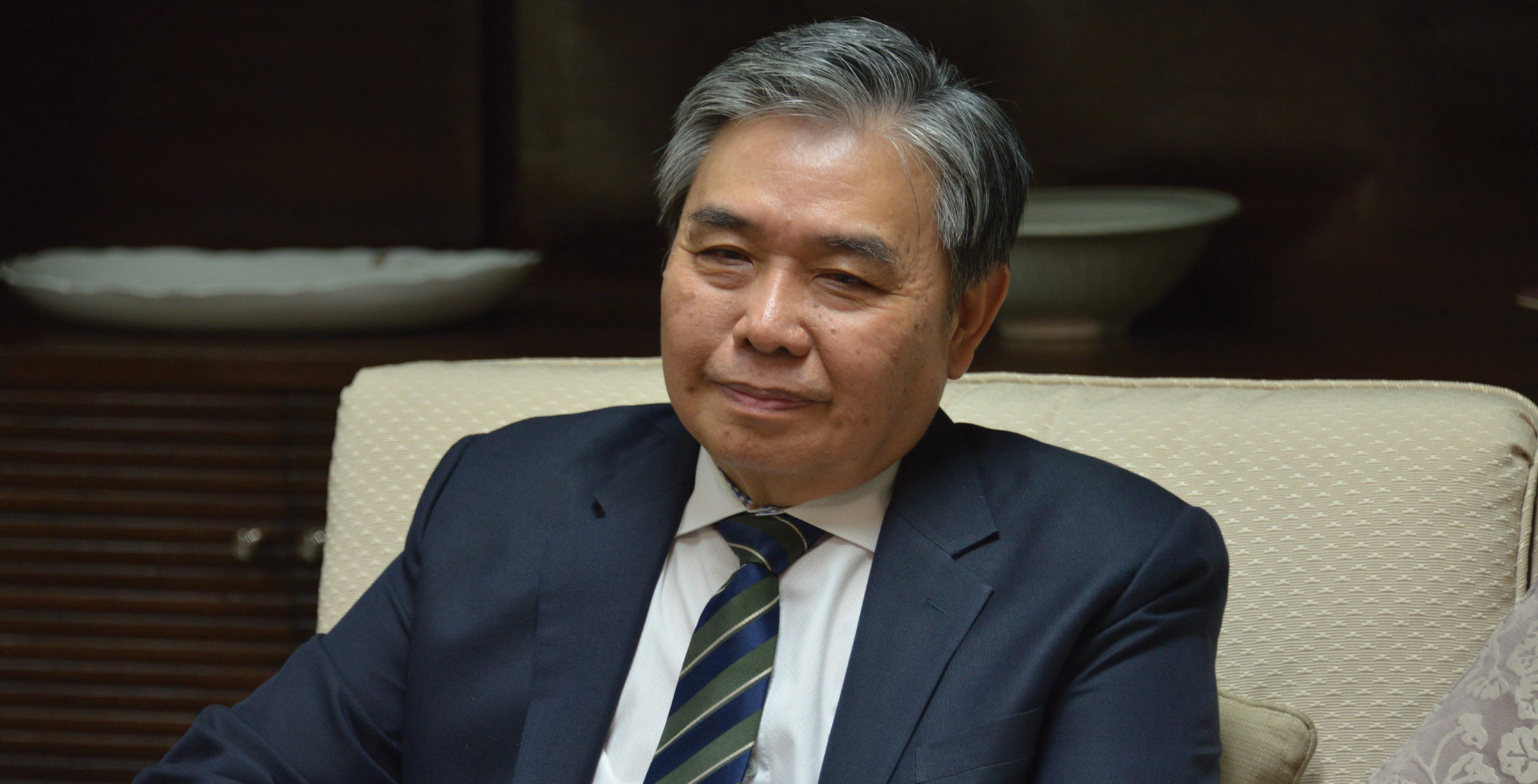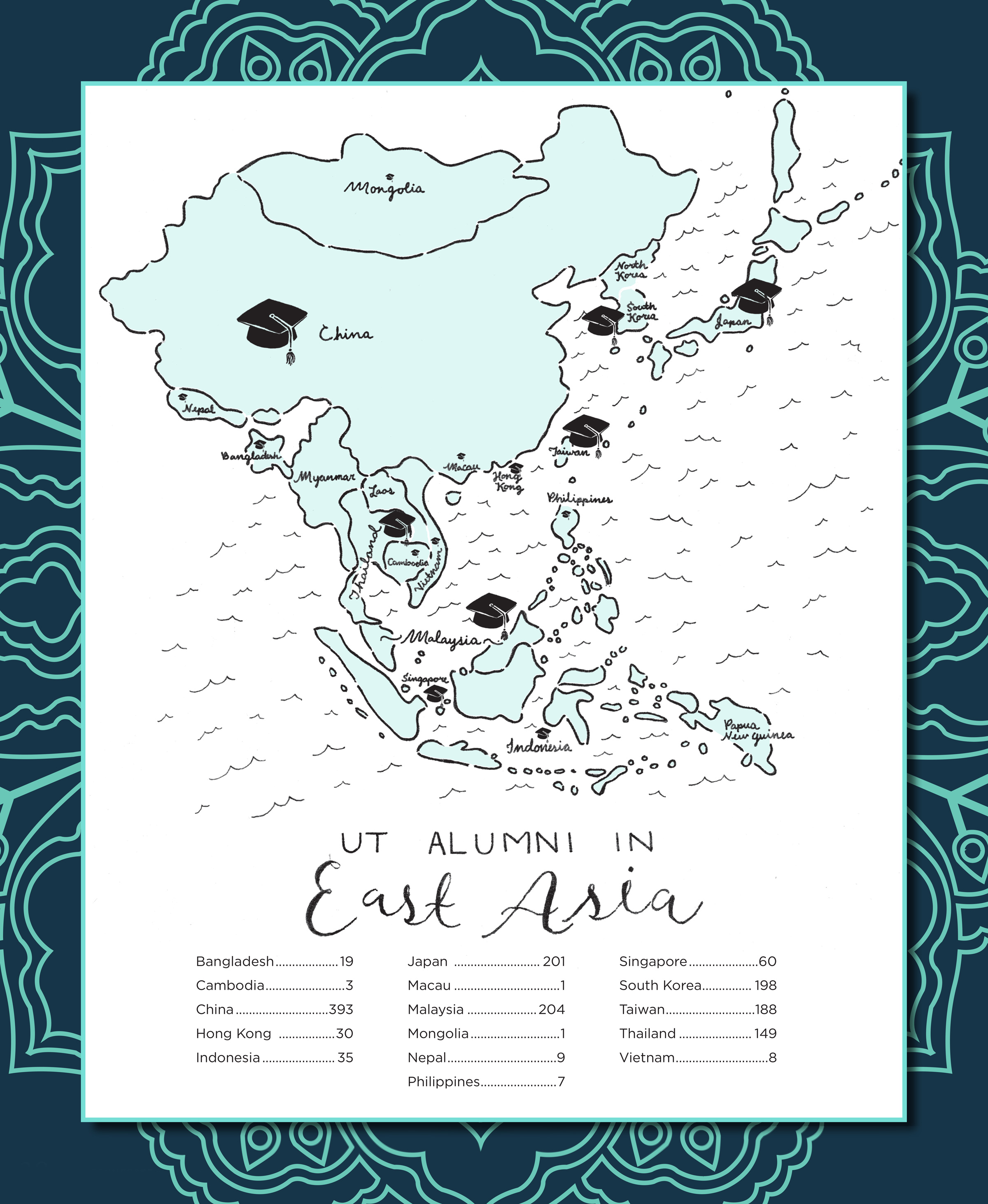By Gary Hengstler
In Thailand, about 20 UT Knoxville graduates meet regularly in Bangkok as part of the unofficial UT Thailand Alumni Association. Members keep their Vol spirit alive as they recall their times in Tennessee.
Undoubtedly, the most prominent member is Thailand’s Finance Minister Apisak Tantivorawong, who received a Master of Business Administration in industrial management from the Haslam College of Business in 1978. Another member is a Tantivorawong adviser and longtime friend Arnooparp Chamikorn, who received a UT Knoxville master’s degree in chemical engineering in 1978.
Their story is an it’s-a-small-world tale.
Their friendship began as high school classmates in Thailand. It continued when both attended Chulalongkorn University in Bangkok and received bachelor’s degrees in chemical engineering in 1975. Then their paths diverged.
Tantivorawong worked in a sugar factory, and Chamikorn took a job in a vegetable oil refinery. Tantivorawong soon decided he wanted a different career path and applied to graduate school at universities in the United States. After surveying his options, Tantivorawong enrolled at UT Knoxville. That’s where he bumped into his old friend Chamikorn.
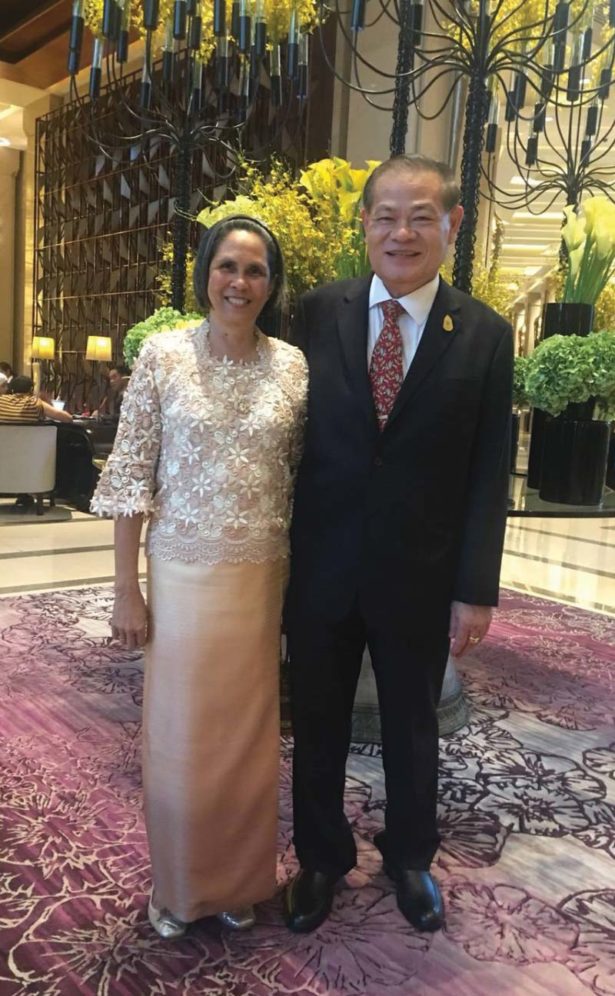
Neither knew the other had enrolled, and while they did so separately, both came to Rocky Top for the same reasons: cost and quality.
“I had choices,” Tantivorawong says, “but UT offered the best value in terms of school ranking and costs.” He recalls life as a UT graduate student as largely studying and working—for university residence halls and for a local Chinese restaurant. “I did not see many football games because I was always working and studying.”
While both men are ardent Vols fans, it was Chamikorn who became enamored with UT sports. “I love UT basketball and football,” he says.
Chamikorn attended on a scholarship from the National Science Foundation, as did his wife, Ruanglakana Chamikorn (Knoxville ’78), a biochemistry major. “I spent much of my time in the lab,” he recalls. He was one of six scholarship researchers, but the other five quit, leaving him to do the bulk of the lab work.
“We lived close to the lab, so my memories mainly are of walking to and from the lab, working in the lab, and having meals with my wife in our apartment.”
The Chamikorns and Tantivorawong socialized when they could, and on holidays, they took road trips to see more of the United States. “We especially went to national parks in many states,” Chamikorn says, “and I think we saw a good part of America. All in all, we got a good education during a very enjoyable time in our lives.”
Tantivorawong also praises his UT education. Recalling his start in 1979 as a project finance analyst at the Industrial Financial Corporation of Thailand, he said his graduate work prepared him for issues he faced on his job.
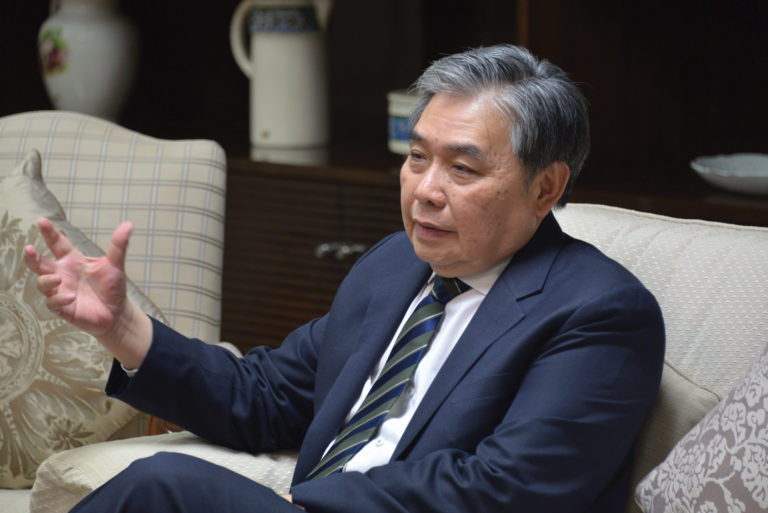
From that start, his career ascended, and he was frequently called in as the “fixer.” In Thailand’s financial crisis of 1997, he oversaw the restructuring and rehabilitation of Bangkok Bank of Commerce. And, when Bangkok Commercial Asset Management Company was set up to manage the bank’s distressed assets, he was appointed bank president to continue the task of debt resolution.
Then he oversaw the rehabilitation of Siam City Bank and its merger with Srinakorn Bank in 2001. In 2003, Interest, Thailand’s leading financial magazine, recognized Siam City Bank as “Bank of the Year” and in 2004 named Tantivorawong “Banker of the Year.” He then transformed another financial institution, Krungthai Bank, into a risk-based organization, again earning “Banker of the Year” honors in 2007 and “Best Corporate Leadership” in the state-owned Enterprise Awards from the country’s ministry of finance in 2012.
In 2015, Thailand’s Prime Minister Prayut Chan-o-cha appointed Tantivorawong as finance minister. For him, it was the perfect opportunity to establish policies he deemed important.
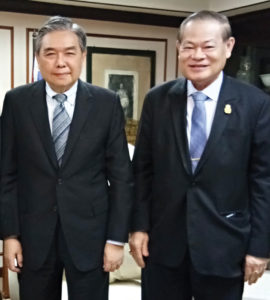
At the time, his longtime friend and fellow UT alumnus Chamikorn owned and operated a real estate company in China. When Tantivorawong called and asked his friend to join him as an adviser, Chamikorn closed his business and returned to Thailand.
“He asked me to serve my country,” Chamikorn recalls, “and because we are such close friends, I knew he needed someone he could trust to support him and help him implement his plan.” The plan has seen Thailand’s economy grow since
Tantivorawong’s appointment: from 0.9 percent in 2014 to 3.2 percent in 2016 and almost 4 percent in 2017.
Speaking at the annual meeting of the International Monetary Fund of the World Bank Group, Tantivorawong said Thailand’s continued prosperity would require addressing income inequality. Toward that, in August 2017, the country registered more than 11 million unemployed or low-income earners (paid the equivalent of less than $900 a year) for a public-assistance program. Next for participants is a program of personalized coaching, skills training and job matching.
One of Tantivorawong’s most ambitious plans centers on the 1.5 trillion-baht ($47.5 billion) project to develop Thailand’s eastern seaboard as part of the country’s Eastern Economic Corridor. The region currently holds great economic diversity, from tourist-packed Pattaya and the industrial Mab Ta Phut to the logistics hub Chachoengsao. The plan calls for infrastructure development to attract investment in smart, eco-friendly technologies.
And, should the ambitious plans come to fruition, their success can be traced all the way back to seeds planted with two lifelong friends in classrooms at UT Knoxville.
